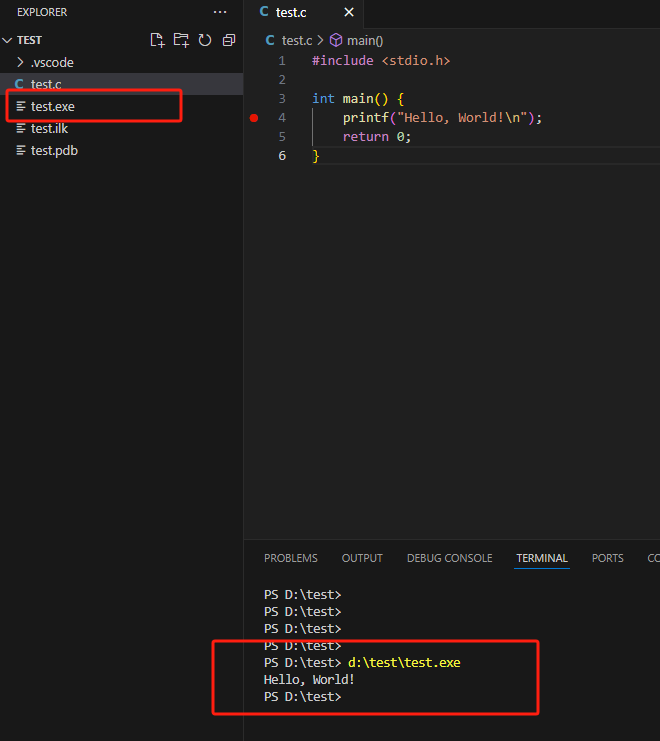介绍
Base64是网络上最常见的用于传输8Bit字节码的编码方式之一,Base64就是一种基于64个可打印字符来表示二进制数据的方法。
需要注意的是:标准的Base64并不适合直接放在URL里传输,因为URL编码器会把标准Base64中的“/”和“+”字符变为形如“%XX”的形式,而这些“%”号在存入数据库时还需要再进行转换,因为ANSI SQL中已将“%”号用作通配符
代码
下面直接贴出代码:
#define BASE64_8BIT 3
#define BASE64_6BIT 4
static const char base64_dict[] = "ABCDEFGHIJKLMNOPQRSTUVWXYZabcdefghijklmnopqrstuvwxyz0123456789+/=";
static const char base64_websafe_dict[] = "ABCDEFGHIJKLMNOPQRSTUVWXYZabcdefghijklmnopqrstuvwxyz0123456789-_=";
static const unsigned int base64_table[0x80] =
{
/*00-07*/0xFF, 0xFF, 0xFF, 0xFF, 0xFF, 0xFF, 0xFF, 0xFF,
/*08-0f*/0xFF, 0xFF, 0xFF, 0xFF, 0xFF, 0xFF, 0xFF, 0xFF,
/*10-17*/0xFF, 0xFF, 0xFF, 0xFF, 0xFF, 0xFF, 0xFF, 0xFF,
/*18-1f*/0xFF, 0xFF, 0xFF, 0xFF, 0xFF, 0xFF, 0xFF, 0xFF,
/*20-27*/0xFF, 0xFF, 0xFF, 0xFF, 0xFF, 0xFF, 0xFF, 0xFF,
/*28-2f*/0xFF, 0xFF, 0xFF, 0x3e, 0xFF, 0xFF, 0xFF, 0x3f, //2 = '+' and '/'
/*30-37*/0x34, 0x35, 0x36, 0x37, 0x38, 0x39, 0x3a, 0x3b, //8 = '0'-'7'
/*38-3f*/0x3c, 0x3d, 0xFF, 0xFF, 0xFF, 0x40, 0xFF, 0xFF, //2 = '8'-'9' and '='
/*40-47*/0xFF, 0x00, 0x01, 0x02, 0x03, 0x04, 0x05, 0x06, //7 = 'A'-'G'
/*48-4f*/0x07, 0x08, 0x09, 0x0a, 0x0b, 0x0c, 0x0d, 0x0e, //8 = 'H'-'O'
/*50-57*/0x0f, 0x10, 0x11, 0x12, 0x13, 0x14, 0x15, 0x16, //8 = 'P'-'W'
/*58-5f*/0x17, 0x18, 0x19, 0xFF, 0xFF, 0xFF, 0xFF, 0xFF, //3 = 'X'-'Z'
/*60-67*/0xFF, 0x1a, 0x1b, 0x1c, 0x1d, 0x1e, 0x1f, 0x20, //7 = 'a'-'g'
/*68-6f*/0x21, 0x22, 0x23, 0x24, 0x25, 0x26, 0x27, 0x28, //8 = 'h'-'o'
/*70-77*/0x29, 0x2a, 0x2b, 0x2c, 0x2d, 0x2e, 0x2f, 0x30, //8 = 'p'-'w'
/*78-7f*/0x31, 0x32, 0x33, 0xFF, 0xFF, 0xFF, 0xFF, 0xFF //3 = 'x'-'z'
};
static const unsigned int base64_websafe_table[0x80] =
{
/*00-07*/0xFF, 0xFF, 0xFF, 0xFF, 0xFF, 0xFF, 0xFF, 0xFF,
/*08-0f*/0xFF, 0xFF, 0xFF, 0xFF, 0xFF, 0xFF, 0xFF, 0xFF,
/*10-17*/0xFF, 0xFF, 0xFF, 0xFF, 0xFF, 0xFF, 0xFF, 0xFF,
/*18-1f*/0xFF, 0xFF, 0xFF, 0xFF, 0xFF, 0xFF, 0xFF, 0xFF,
/*20-27*/0xFF, 0xFF, 0xFF, 0xFF, 0xFF, 0xFF, 0xFF, 0xFF,
/*28-2f*/0xFF, 0xFF, 0xFF, 0xFF, 0xFF, 0x3e, 0xFF, 0xFF, //1 = '-'
/*30-37*/0x34, 0x35, 0x36, 0x37, 0x38, 0x39, 0x3a, 0x3b, //8 = '0'-'7'
/*38-3f*/0x3c, 0x3d, 0xFF, 0xFF, 0xFF, 0x40, 0xFF, 0xFF, //2 = '8'-'9' and '='
/*40-47*/0xFF, 0x00, 0x01, 0x02, 0x03, 0x04, 0x05, 0x06, //7 = 'A'-'G'
/*48-4f*/0x07, 0x08, 0x09, 0x0a, 0x0b, 0x0c, 0x0d, 0x0e, //8 = 'H'-'O'
/*50-57*/0x0f, 0x10, 0x11, 0x12, 0x13, 0x14, 0x15, 0x16, //8 = 'P'-'W'
/*58-5f*/0x17, 0x18, 0x19, 0xFF, 0xFF, 0xFF, 0xFF, 0x3f, //4 = 'X'-'Z' and '_'
/*60-67*/0xFF, 0x1a, 0x1b, 0x1c, 0x1d, 0x1e, 0x1f, 0x20, //7 = 'a'-'g'
/*68-6f*/0x21, 0x22, 0x23, 0x24, 0x25, 0x26, 0x27, 0x28, //8 = 'h'-'o'
/*70-77*/0x29, 0x2a, 0x2b, 0x2c, 0x2d, 0x2e, 0x2f, 0x30, //8 = 'p'-'w'
/*78-7f*/0x31, 0x32, 0x33, 0xFF, 0xFF, 0xFF, 0xFF, 0xFF //3 = 'x'-'z'
};
#define base64_encode_length(A) (((A + BASE64_8BIT - 1) / BASE64_8BIT) * BASE64_6BIT + 1)
#define base64_decode_length(A) (((A + BASE64_6BIT - 1) / BASE64_6BIT) * BASE64_8BIT)
static size_t base64_encode_impl(char* dest, const char* src, size_t size, const char* dict)
{
unsigned char* usrc = (unsigned char*) src;
unsigned char* udest = (unsigned char*) dest;
size_t destsize = 0;
while (size >= 1)
{
size_t blocksize = __min(size, BASE64_8BIT);
// Encode inputs...
unsigned char n1, n2 = 0, n3 = 0, n4 = 0;
switch (blocksize)
{
case 3:
n4 = (usrc[2] & 0x3f);
n3 = ((usrc[2] & 0xc0) >> 6);
case 2:
n3 |= ((usrc[1] & 0x0f) << 2);
n2 = ((usrc[1] & 0xf0) >> 4);
case 1:
n2 |= ((usrc[0] & 0x03) << 4);
n1 = ((usrc[0] & 0xfc) >> 2);
break;
default:
break;
}
usrc += blocksize;
size -= blocksize;
// Padding...
switch (blocksize)
{
case 1:
n3 = 64;
case 2:
n4 = 64;
case 3:
break;
default:
break;
}
// 4 outputs...
*udest++ = dict[n1];
*udest++ = dict[n2];
*udest++ = dict[n3];
*udest++ = dict[n4];
destsize += BASE64_6BIT; //4
}
return destsize;
}
static size_t base64_decode_impl(char* dest, const char* src, size_t size, const unsigned int* base64table)
{
if (size < BASE64_6BIT || size % BASE64_6BIT != 0)
return 0;
unsigned char* usrc = (unsigned char*) src;
unsigned char* udest = (unsigned char*) dest;
size_t destsize = 0;
while (size >= 1)
{
// 4 inputs...
unsigned char in1 = *usrc++;
unsigned char in2 = *usrc++;
unsigned char in3 = *usrc++;
unsigned char in4 = *usrc++;
size -= BASE64_6BIT; //4
// Convert ascii to base16...
in1 = base64table[in1];
in2 = base64table[in2];
in3 = base64table[in3];
in4 = base64table[in4];
// 3 outputs...
*udest++ = ((in1 & 0x3f) << 2) | ((in2 & 0x30) >> 4);
*udest++ = ((in2 & 0x0f) << 4) | ((in3 & 0x3c) >> 2);
*udest++ = ((in3 & 0x03) << 6) | (in4 & 0x3f);
destsize += BASE64_8BIT; //3
// Padding...
if (in4 == 64)
{
--destsize;
if (in3 == 64)
{
--destsize;
}
}
}
return destsize;
}
std::string base64_encode(const char* s, size_t len)
{
std::string temp;
if (!s || len == 0)
{
return temp;
}
temp.resize(base64_encode_length(len));
size_t output_size = base64_encode_impl(&(temp[0]), s, len, base64_dict);
temp.resize(output_size);
return temp;
}
std::string base64_decode(const char* s, size_t len)
{
std::string temp;
if (!s || len == 0)
{
return temp;
}
temp.resize(base64_decode_length(len));
size_t output_size = base64_decode_impl(&(temp[0]), s, len, base64_table);
temp.resize(output_size);
return temp;
}base64_encode 是编码
base64_decode 是解码







![[LeetCode] 二叉树 I — 深度优先遍历(前中后序遍历) | 广度优先遍历(层序遍历):递归法迭代法](https://i-blog.csdnimg.cn/img_convert/a160dc1229cbdd28e7fb6c1d54a0aa14.jpeg)











